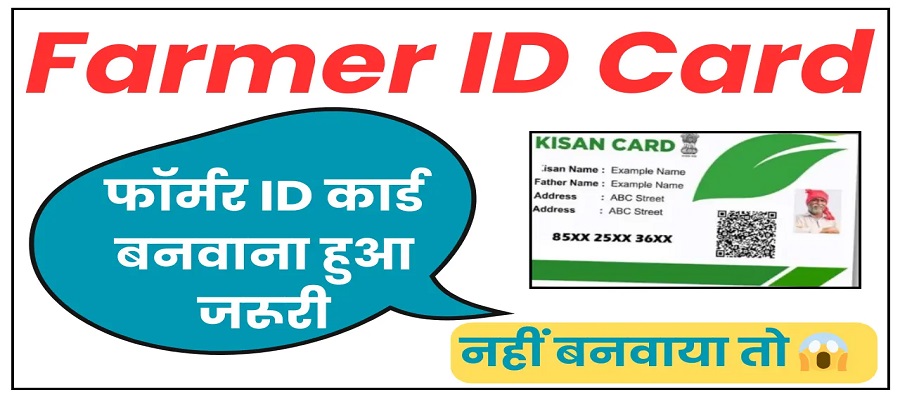E-Business
SAP Explains How GRC Unified Approach Mitigates Business Risks

Governance describes the activities that ensure business is done according to established standards and goals; however, risk involves strategically creating value and protecting value, said SAP.
According to Salman Akorede, GRC Presales Consultant, SAP West Africa Region, compliance refers to the controls in place to ensure compliance with laws, regulations and directives affecting businesses.
Speaking on why effective GRC a challenge for so many businesses, he said, organizations are confronted with an increasing need to respond to their stakeholders – government and regulatory agencies, and react to changes in their internal operational environments – mergers and acquisitions, processes, business relationships, strategy, information technology, financial reporting requirements and employees.
He added that changes in their external environments – economic uncertainties, geo-political, environmental, societal, industry and market forces, are part of the issues.
Akorede said, “This is an extremely complex environment and all these changes translate into risks and the critical need to make appropriate responses, with changes to business policies and procedures in a timely and accurate manner by using current and reliable information.
“In Nigeria, as well as elsewhere in the world, governmental regulations and compliances are only increasing. Everyday there are more organizational and industry risks that have to be managed together with other operational risks. These governance, risks and compliance challenges are often managed at department, operational, functional or role levels rather than through an integrated and coordinated approach as offered by a GRC technology solution.
“Managing risk and compliance in silos as described above is complex, confusing and costly. For each new regulation or risk discipline, organizations typically implement a new technology point-solution. This fragmented approach clearly limits an organization’s ability to streamline risk and compliance processes and reduce costs. It also obscures the opportunity to integrate risk and compliance to gain a holistic view of the organization’s risk landscape”.
He hinted that this is a problem for organizations, because fractional, disintegrated and disconnected functional business activities, information and data are spread across many people and systems.
Organizational practices across the enterprise will therefore be inconsistent. Without an integrated solution, organizational practices may also not be in alignment with set missions, goals and objectives.
He added that, in response to the challenge of managing the multitude of risks, forward thinking organizations are embracing integrated Governance, Risks and Compliance (GRC) technology initiatives to prevent unplanned financial losses and erosion of shareholders’ wealth.
“By contrast, some organizations still have a siloed view when it comes to these solutions and view GRC initiatives as reactive and isolated quick-fixes. These organizations are not necessarily aware that implementing disconnected applications for selected processes, departments and systems only adds to fragmented and incomplete GRC management and reporting.
“By following a unified approach to governance, risk and compliance using integrated technology, organizations can quickly maximize strategic and operational performance, cost-effectively manage regulations and policies and proactively mitigate business risks.
“SAP solutions for GRC help companies to proactively balance risk and opportunity, including access control, process control, risk management, audit management, fraud management and global trade services in an integrated manner on a single harmonized IT platform”.
Ultimately, SAP’s goal is to enable organizations of all sizes to pinpoint all relevant risks and potential compliance issues to enable them to make optimal decisions in light of both the opportunity ahead and the related risks.
E-Business
NIMC Plans to Register 95 Percent Nigerians by December

Abisoye Coker-Odusote, director general, National Identity management commission (NIMC) has said that the commission is set to register 95 percent of Nigerians into the National Identity Database before December 2025.

Abisoye Coker-Odusote,, DG, NIMC
She made this statement at a press briefing to highlight the commissions goal aligns with President Bola Tinubu’s Renewed Hope Agenda, particularly on digital governance and inclusive development.
The mass enrollment drive will be powered by a combination of improved infrastructure, expanded registration centres, and robust public sensitization campaigns.
As of May 2025, NIMC reports over 120 million Nigerians have been enrolled, and about 100 million more would be captured by December.
E-Business
Farmers to Get Identity Card for Loans, Inputs

The federal government, in collaboration with the International Fund for Agricultural Development (IFAD), is building a digital registrar that will identify farmers, their farmlands, type of soil and the crops they grow for targeted services.

The information and the National Identification Number (NIN) will be integrated into a multipurpose identity card that farmers can use to access financial services, inputs and other forms of government assistance.
The digitisation is expected to harmonise farmers’ data across all the 36 states and the Federal Capital Territory.
Speaking at the national launch of the Policy Dialogue Initiative on the National Digital Farmers Registry (NDFR) recently in Abuja, Dr Marcus Ogunbiyi, permanent secretary, Federal Ministry of Agriculture and Food Security (FMAFS), said the new system would address the issue of portfolio farmers, whom he described as “farmers who have no farm.”
“We are going to register farmers and their farms. Not only that, farmers and the type of crop they grow, farmers and the locality they are, the type of soil they have on their farms. There is no farm that will not have a farmer. But there are many farmers who do not have farms. This is an encompassing package.
“When we register these farmers, we are going to provide a physical and digital card for them. With the card, many things can be done by the farmers. It can be used as a means of identification, an asset to some gateway – just anything. It is going to have a handshake with the database of the country, such that with that particular card, the farmer can enter any place and get things done. He or she can redeem inputs and even get a loan, depending on the financial entity,” Ogunbiyi explained.
He said that to accomplish this, the Federal Ministry of Agriculture and Food Security has taken decisive steps to transform their approach to farmer data management, adding, “Chief among these is our strategic partnership with the National Identity Management Commission (NIMC) to implement a far-reaching farmer registration and database project. At the heart of this initiative is the integration of the NIN, which ensures that every Nigerian farmer is uniquely identified and seamlessly integrated into a national agricultural system.”
Mrs Dede Ahoefa Ekoue, country director/representative of the IFAD in Nigeria, said the United Nations (UN) organisation was proud to be part of the initiative on the National Digital Farmer Registry in Nigeria.
“Our role is to convene all the partners, development partners from the public sector, private sector and the international community to put our resources together to support the effort of the government in establishing and enabling a digital farmer registry for the country,” she said.
Mrs Ekoue said that although there were previous efforts to have a national database of farmers, it had the issues of fragmentation and sustainability.
“The government is now providing us with a sense of direction and matching orders to all the actors to work together. This is what we are doing today with several partners, including the African Development Bank, FAO, the World Bank, the EU, the Islamic Development Bank and UK. Also, what is very key is farmers’ organisations because it is about them, it is for them, it must be with them,” she added.
The country director said the IFAD was happy to bring together the private sector and different ministries, departments and agencies, adding, “It will be a game changer for having a strong, updated and sustainable national digital farmer registry.”
Dr Lekan Tobe, the country director of Heifer International in Nigeria, in his remarks at the official launch of the Policy Dialogue Initiative on the National Digital Farmer Registry, emphasised the critical role of partnership and data in transforming Nigeria’s agricultural sector.
He said that this initiative, born from recommendations of previous policy dialogues organised in collaboration with the federal government, aimed to scale up innovative digital technology to enhance food systems across the country.
E-Business
Dyna.Ai Launches Operations in Nigeria

Dyna.Ai, a global leader in AI-as-a-Service (AIaaS), has launched its operations in Nigeria with an exclusive closed-door ‘Nigeria Dyna Day’ event in Lagos, which saw the introduction and orientation of its suite of AI-powered products and solutions to Nigeria’s emerging financial ecosystem.

The event, tagged ‘Nigeria Dyna Day’ and themed “AI Unleashed: Revolutionising Nigeria’s Financial Future,” brought together leading voices from the country’s AI, financial, fintech, telecom, and other key sectors, including representatives from government agencies and major enterprises.
In his opening remarks, Tomas Skoumal, chairman and co-president of Dyna.Ai, emphasized the strategic importance of Nigeria and the broader African market, stating, “For us, it makes sense to start in Nigeria.
There is no bigger country in Africa—this is where the momentum is.” He noted that Africa is no longer just “the future,” but is actively transforming today, driven by rapid digitalization and fintech innovation.
“This is the perfect time to be here,” he added, highlighting that Dyna.Ai sees technology as a vital bridge to financial inclusion and long-term growth across the region.
Skoumal introduced Dyna.Ai’s advanced Agentic AI solutions, including its proprietary Agent Studio and industry-specific language models, designed to power intelligent automation across customer service, marketing, collections, HR and more.
He also underscored the company’s long-term ambition to invest in local talent, stating, “We’re not just here to sell a product—we’re here to build infrastructure, create local jobs, and scale innovation from Nigeria to the rest of Africa.”
Dyna.Ai also showcased its advanced AI technologies at the event, including AvatarGPT, an AI digital human delivering interactive experiences; VoiceGPT, a voice agent featuring authentic local accents for seamless communication in Yoruba, Hausa, and Igbo; along with live demonstrations showing how these innovations empower customer engagement and employee experience.
Delivering the keynote address at the event, Tokoni Peter Igoin, Special Assistant to the President on ICT Development and Digital Innovation, underscored the Federal Government’s vision for a secure and forward-thinking digital ecosystem.
“The government of the Federal Republic of Nigeria, under the visionary leadership of His Excellency, President Bola Ahmed Tinubu, is fully committed to responsible innovation. Our approach to AI and financial technology is rooted in a positive framework. It encourages creativity while ensuring transparency, data protection, and digital security”, he said
Also in his remarks, Olatunbosun Alake, Lagos State Commissioner of Innovation, Science and Technology, gave insights from the government/regulatory perspective.
He announced that the Lagos State government is also taking steps towards the wide adoption and regulation of artificial intelligence in the state with the planned release of the first AI guidelines for the deployment and management of AI in the coming weeks.

 E-Business2 days ago
E-Business2 days agoFarmers to Get Identity Card for Loans, Inputs

 Telecom2 days ago
Telecom2 days agoARCON Probes 9mobile over Alleged N1Bn Advertising Debt

 News2 days ago
News2 days agoSERAP Sues NNPC over Alleged Missing ₦500Bn, Seeks Accountability

 News2 days ago
News2 days agoFirst Asset Management Receives 2024 Fund Manager Award

 E-Business2 days ago
E-Business2 days agoDyna.Ai Launches Operations in Nigeria

 General News2 days ago
General News2 days agoNigeria Relaunches National Talent Export Programme to Unlock $1 Trillion Global Outsourcing Market

 Telecom2 days ago
Telecom2 days agoNiRA Holds 17th AGM, Elects New Leadership to Propel .ng Domain Growth

 News2 days ago
News2 days agoIkeja Computer Village Begins Biometrics Registration to Tackle Crime


























